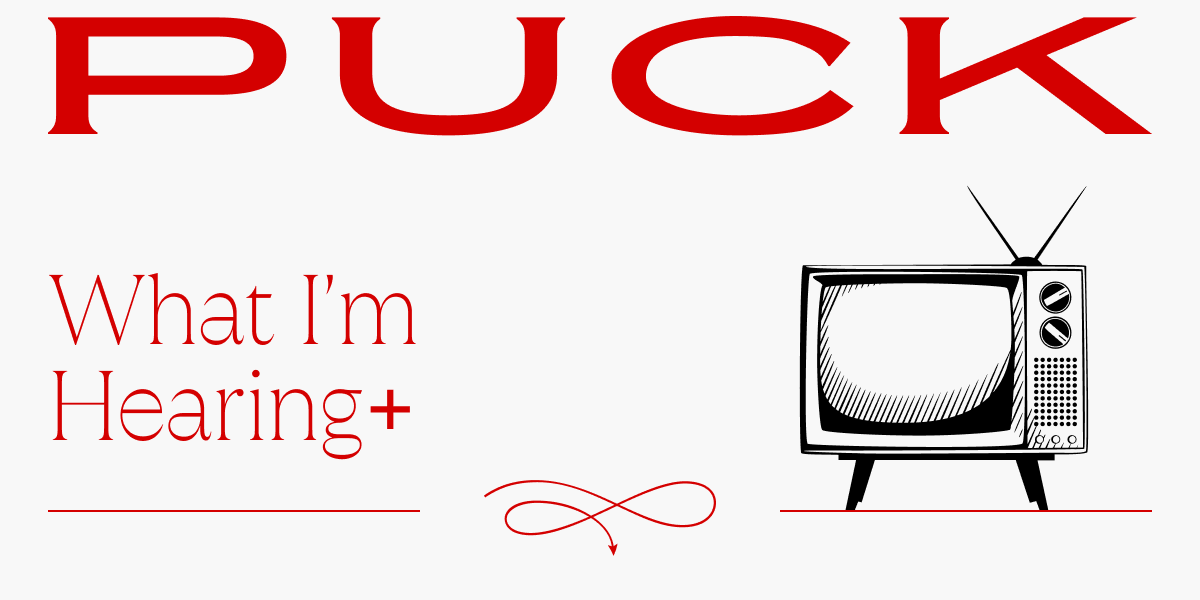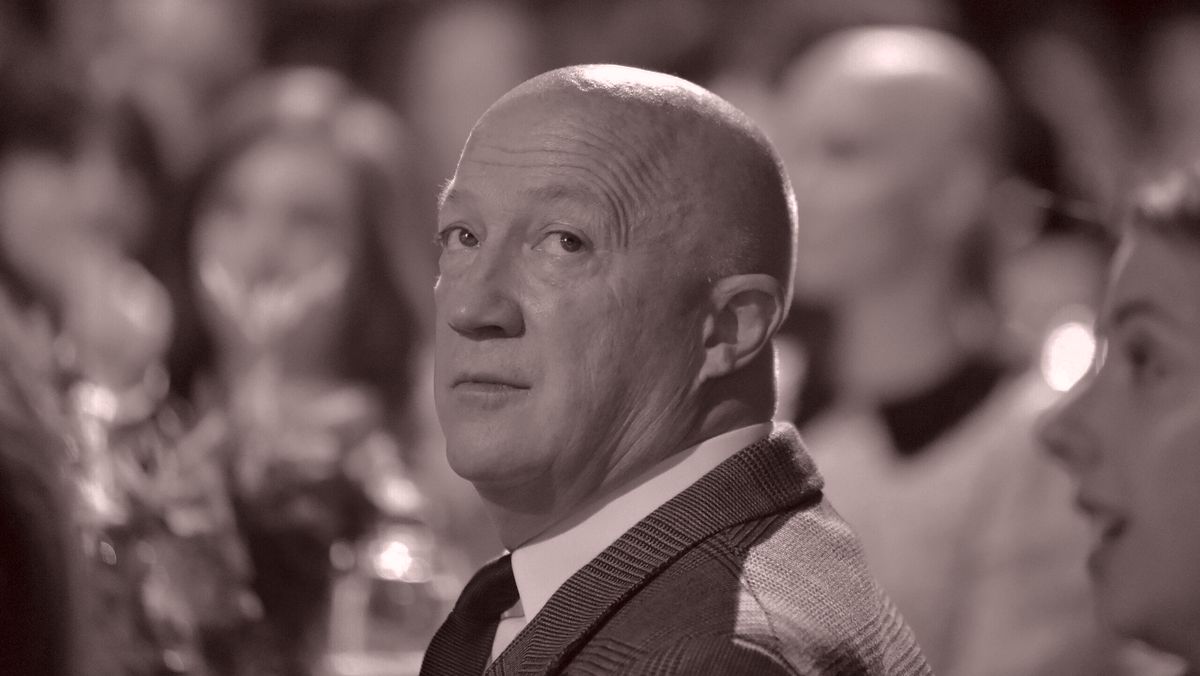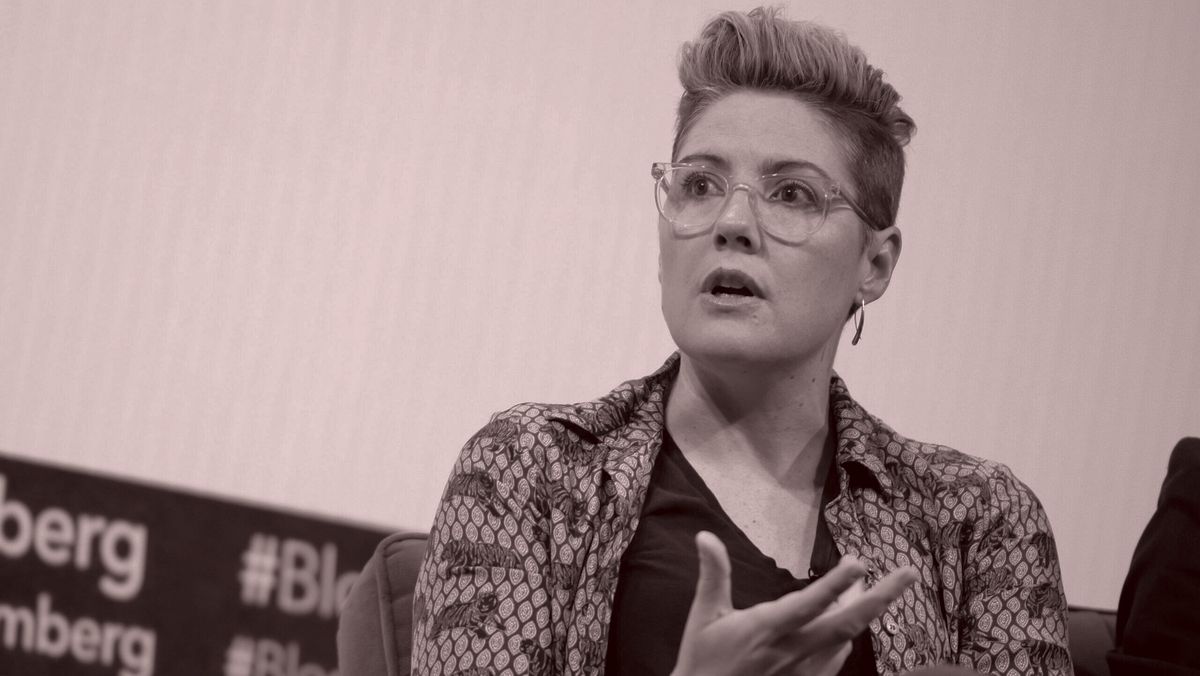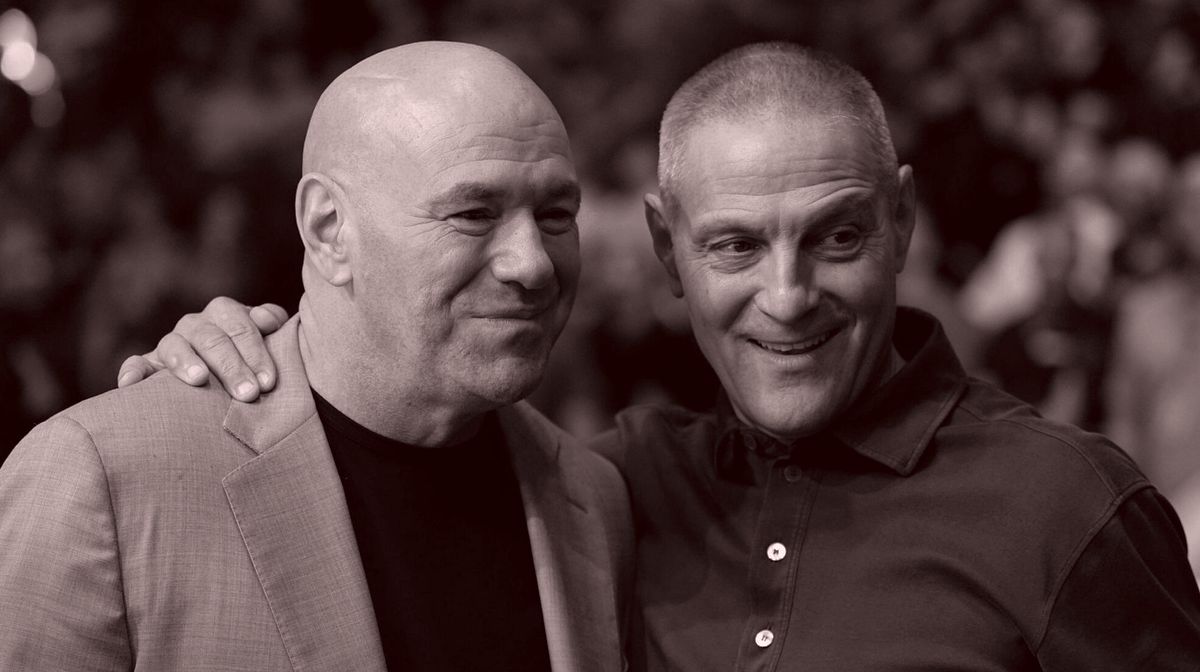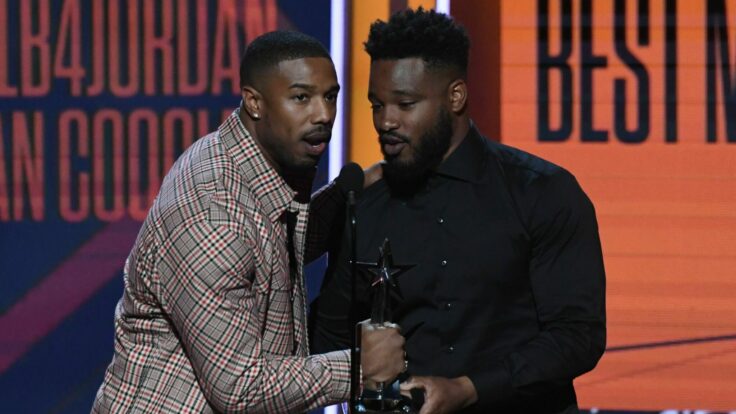Hello again from CinemaCon in Las Vegas and welcome back to What I’m Hearing+, the
straight flush at the WIH poker table. Hard to believe, but it’s been 10 years this week since United Talent Agency conducted the infamous “lawless midnight raid” on archrival CAA, which led to years of litigation and, as Eriq Gardner reveals today, an appeals court ruling on who should foot the bill. But that’s not the only
major legal development in the talent agency world. Eriq’s also got an exclusive update on the heated arbitration between CAA and the defectors who founded Range Media, plus an important judicial ruling involving Real Housewives and the consumption of alcohol. All yours, Eriq…
|
|
|

|
Eriq Gardner
|
|
- A landmark ‘Real
Housewives’ ruling: My first thought upon seeing Judge Lewis Liman’s ruling on the alleged mistreatment of former Real Housewives of New York castmember Leah McSweeney: Seriously? 100 pages? Plus an appendix for the Cliffs Notes crowd? If Liman has this much to say about reality TV, how is he ever going to untangle the Blake Lively–Justin Baldoni mess over which he is also
presiding?
Then I dug into the ruling, and it became clear why this First Amendment case is destined to become an entertainment law classic. Right out of the gate, Liman opens with a burn: “Most of the women in the Real Housewives franchise openly or privately suffer from mental illness, addiction, and personality disorders.”
Ouch.
Eventually, Liman gets to the heart of the case. Producers allegedly knew about McSweeney’s struggles with sobriety when casting her, and yet did everything they could to get her drinking again—supplying bottomless cocktails and deliberately crafting scenarios to exploit her vulnerabilities and exacerbate her disorder. Yes, this makes for dramatic television, but does it leave Bravo owner NBCUniversal legally vulnerable?
Liman writes that, in theory, the government
does have the power to regulate alcohol consumption on set, even suggesting that a law requiring accommodations (like offering nonalcoholic drinks) could pass constitutional muster. He points out that no one bats an eye at state regulation of working conditions, or limited hours for child actors. But then he pivots, and hands the win to NBCU. According to Liman, producers have the right to “cast only persons who could consume large quantities of alcohol,” and that creative freedom
outweighs the state’s interest here. That interpretation gives NBCU a landmark victory.
While Liman dismissed McSweeney’s core discrimination claim, he allowed discovery to proceed on the charge that she endured a hostile work environment related to her alcohol use disorder. He also ruled that RHONY producers are not protected from claims arising from allegations that they directed castmembers to raise McSweeney’s substance abuse issues on camera. It’s a deeply nuanced
opinion, well worth the read.
- Gabelli makes his case: The Skydance-Paramount saga may feel never-ending, but it did hit trial today. Mario Gabelli, the largest non-Redstone Paramount shareholder, is trying to convince the Delaware Court of Chancery to force the company to open its books so that he
can analyze how value is being allocated between Shari Redstone’s Paramount shares and National Amusements’ non-Paramount assets.
Gabelli et al. have suggested that Redstone may have diverted more favorable offers away from Paramount and the majority of its shareholders. In Delaware, Paramount’s attorneys pushed back, arguing that Gabelli lacks any credible basis to infer wrongdoing. His suspicions, they contend, are simply not enough.
One more note about
the merger: Yesterday, F.C.C. chairman Brendan Carr met with Teamsters president Sean O’Brien—the union even posted a trophy photo on social media—and I’m told that Carr privately expressed his view that Skydance’s application to transfer control of CBS isn’t going over well. I know some of my Puck partners believe this will all be sorted and
the merger will close, but I still think this is a jump ball.
Remember, Carr doesn’t need to actively vote against this merger to cause trouble—he can create serious problems just by sitting on his hands. Ironically, this would be easier to navigate if it were a traditional asset sale, rather than Redstone moving her NAI shares. In that scenario, the merger might be restructured so that the non-CBS assets move into David Ellison’s hands immediately. Instead, we’re stuck
in a holding pattern—one that’s only going to get more tense.
- ‘Mission: Impossible 8’ financials revealed: Intriguingly, an upcoming trial could shed light on Paramount’s in-house expectations for Mission: Impossible—The Final Reckoning, which opens in theaters May 23. As I’ve reported, former New Republic Pictures president Bradley Fischer is suing his old company, which has a slate deal with Paramount. Fischer is seeking lost
profits and reputational damages after being cut out of the producing credits on Top Gun: Maverick and other projects. Based on a review of Paramount’s “ultimates”—a 10-year revenue projection, which is typically super-confidential—and Fischer’s deal entitling him to 10 percent of New Republic’s net profits, his expert Ben Sheppard estimates he’s owed $3.6
million from Final Reckoning.
New Republic says that amount is “too speculative,” and argues that Fischer is not entitled to damages for Final Reckoning or any future projects. The company has also asked the judge to exclude from trial any talk of prospective damages from Final Reckoning, as well as discussion of a litigation reserve created when Russian oligarch Dmitry Rybolovlev recently sold New Republic to Ron Burkle.
Fischer’s lawyer contends that the jury should hear about the money that’s been set aside pending judgment, on the grounds that Rybolovlev still has a personal stake in the outcome of this case.
|
|
|
And now for the main event…
|
|
|
While its legal battle with Range Media grinds on, the talent agency was quietly
handed a major setback in a legal subplot over the equity it allegedly owes to its ex-agents. Meanwhile, CAA’s lawyers are reprising their decade-old strategy from a previous conflict with UTA. The only winner in both cases? Bryan Freedman…
|
|
|
Ever since CAA went to war with a group of former agents who jumped ship to
become managers at Range Media, the conflict has played out like an extended game of cat and mouse. The agency alleges that the defectors—Jack Whigham, Dave Bugliari, Michael Cooper, and Mick Sullivan—took off with confidential intel and are now helping Range C.E.O. Pete Micelli run an unlicensed competitor. But proving that claim has been a Sisyphean slog, with CAA forced to jump through hoop after hoop just to
secure the most basic discovery. Arbitration subpoenas gave way to public court petitions, which spiraled into jurisdictional appeals and other theatrics. Just last week, CAA filed a new lawsuit, aimed at compelling testimony from the assistants who left alongside their bosses, accusing them of being part of a broader “effort to block CAA from getting at the truth.” Yes, CAA is suing its former assistants.
Behind the aggressive maneuvering lies a less-publicized twist. I’ve learned that, a few months ago, the arbitration panel quietly ruled in favor of the ex-agents on a pivotal issue: CAA, the panel found, improperly withheld the equity that the insurgent agents had vested over decades. Critically, the panel applied California law, rather than CAA’s strong preference for Delaware law. When it comes to employment agreements, California favors employee mobility and is notoriously hostile to
noncompetes. Delaware is more corporation friendly, and presumably would agree with CAA that voiding the ex-agents’ shares was legally sound. The arbitration panel’s choice of California law ended up giving credence to the ex-agents’ claim that CAA voiding their shares would discourage Californians from changing jobs, thereby hurting competition in the marketplace.
Now, the question is how much those
shares are worth. The ex-agents say $70 million, a valuation based on the 2023 acquisition of a majority stake in the company by French businessman François-Henri Pinault. CAA says zero—unless there’s a liquidity event, like an I.P.O.—or at most, much less than $70 million. Even then, CAA argues, any payout should be offset by alleged loyalty breaches that took place behind the scenes before the agents’ departure. Hence, the ongoing scramble to depose assistants and reconstruct
who said what to whom and when.
The latest arbitration hearing wrapped a couple weeks ago with no resolution. Another three-week session is set for May, giving CAA time to pry loose evidence. Meanwhile, a parallel lawsuit against Range is pressing forward, with CAA accusing the company of being “built on deceit.” Range calls this suit a retaliatory P.R. stunt, designed to send a “chilling message” to anyone thinking about
defecting—evidence, they argue, that at CAA, “contractual agreements and legal protections” take a back seat to “the whims and greed of its leadership.”
|
Whether this ends more favorably for CAA and its C.E.O., Bryan
Lourd, than its bruising legal battle with UTA a decade ago remains to be seen. You remember that one, of course. Back in 2015, a different set of high-profile agents—Greg Cavic, Gregory McKnight, Martin Lesak, Jason Heyman, and Nick Nuciforo—made a similarly dramatic exit. CAA howled, calling it a “lawless midnight raid” and accusing the agents of recruiting colleagues and wooing clients like
Will Ferrell and Chris Pratt while still on the CAA payroll. As with today’s Range fight, the case revolved around contractual loyalty and the ever-blurry boundary between fair competition and foul play.
The CAA–UTA scuffle pinballed between arbitration and L.A. Superior Court for four years before it eventually settled. And though the terms were never disclosed, I can
report that UTA paid CAA just $6.5 million to make it go away. The agreement stipulated that neither party would be declared the prevailing one. But given that CAA was gunning for a far higher payout—and likely could’ve negotiated a commission split in that ballpark from the jump—it wasn’t exactly a win for Lourd & Co.
So, is history repeating itself? CAA certainly seems to be using the same playbook. In the Range case,
it’s leaving no stone—or rogue assistant—unturned. You can safely assume everyone’s legal bills are somewhere between extravagant and obscene. Speaking of which: Bryan Freedman, the litigator representing the agents who joined Range, also represented UTA in the earlier case.
|
Here’s a remarkable footnote that’s gone largely unnoticed: A piece of the
CAA–UTA legal mess was only resolved last week. After settling with CAA in 2015, UTA sued its insurer, Markel, seeking reimbursement for $7 million in legal costs, roughly half of which went to Freedman. Markel balked, calling the figure “exorbitant” and claiming it wasn’t on the hook for damages stemming from a “willful” wrongful act—i.e., poaching agents, or, in legalese, UTA’s alleged inducement of CAA employees to violate their fiduciary duties.
UTA countered that hiring rival agents is hardly a criminal offense, that allegations don’t equal evidence, and that Markel had a contractual duty to advance legal expenses. UTA brought in no fewer than three expert witnesses to defend the reasonableness of its legal fees and the settlement. Among them: former Gibson Dunn partner Scott Edelman, who noted that CAA had sued UTA directly, outside of
arbitration—exposing it to the threat of punitive damages. On March 20, the 9th Circuit Court of Appeals ruled in Markel’s favor, holding that the insurer had no duty to foot UTA’s legal bills.
Meanwhile, CAA seems to be reprising that strategy against Range, pursuing claims in arbitration against former agents who want their equity payout, while suing the agency separately in open court. Defending Range in the current
matter is Edelman’s former partner, Orin Snyder. Small town.
|
Thanks, Eriq. I’ll be back on Thursday evening.
Matt
|
|
|
Puck founding partner Matt Belloni takes you inside the business of Hollywood, using exclusive reporting and insight
to explain the backstories on everything from Marvel movies to the streaming wars.
|
|
|
Unique and privileged insight into the private conversations taking place inside boardrooms and corner offices up and
down Wall Street, relayed by best-selling author, journalist, and former M&A senior banker William D. Cohan.
|
|
|
Need help? Review our FAQ page or contact us for assistance. For brand partnerships, email ads@puck.news.
You received this email because you signed up to receive emails from Puck, or as part of your Puck account associated with . To stop receiving this newsletter and/or manage all your email preferences, click here.
|
Puck is published by Heat Media LLC. 107 Greenwich St, New York, NY 10006
|
|
|
|
